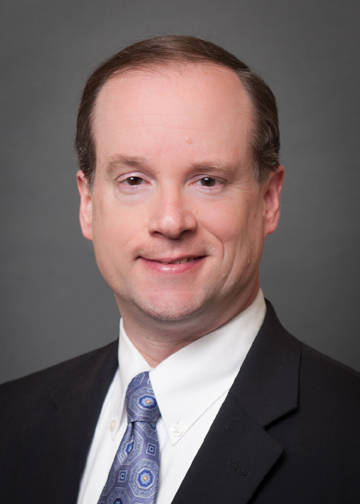In September, the GOP officially became the third-largest group of registered voters in North Carolina, as the number of unaffiliated voters surpassed Republican registration for the first time.
In September, the North Carolina Republican Party continued to add registered voters while the Democratic Party continued to lose them, continuing a long-term trend of GOP gains and Democratic decline.
Both of these statements are true. But which one did you hear the most about? Many state media outlets went with the “Republicans in trouble” theme, a theme consistent with national reporting about the wobbly start of the Trump administration and consistent with, let’s face it, what most of the reporters and editors who staff these media outlets expected to be true.
The latter statement, the “nothing much new here” theme, more accurately reflects the partisan trends in North Carolina. Unaffiliated voters have consistently grown as a share of total registrations. Democratic voters have consistently fallen as a share of total registrations. The GOP has continued to add voters each year, at a pace that has almost but not quite maintained its share.
Let’s get more specific. Just in the past eight years, from September 2009 to this month, Democratic registration in North Carolina has dropped by about 128,000 voters. Republicans have gained 124,000 voters during the same period. The Libertarians have gained 28,000 voters. And the ranks of the unaffiliated have shot up by 687,000 voters.
In that first fall of the Obama administration, registered Democrats made up 46 percent of the North Carolina electorate. Republicans accounted for about 32 percent. Unaffiliated voters made up 22.5 percent. Today, in the first fall of the Trump administration, the shares are 39 percent Democratic, 30 percent unaffiliated, 30 percent Republican, and a trace of Libertarians.
This is not simply a case of former President Obama weakening his party down the ballot (although he manifestly did so during his tenure). Since the beginning of this year, Democratic registration in North Carolina has dropped by thousands. Republicans have gained thousands. Unaffiliated registrations are up by tens of thousands.
North Carolina has a fascinating, complicated, and competitive electorate. As we have seen in recent years, either major party can win statewide races given the right combination of candidates, resources, messages, and timing. Republicans have won more often than Democrats — and this even includes the statewide tallies for legislative races, so it’s not merely a reflection of district maps — but Democrats won crucial races for governor and attorney general last fall.
Basic math suggests that unaffiliated voters couldn’t possibly have broken evenly between the two major parties. If they had, Republicans couldn’t have won the races they did, even if you add in some conservative Democrats who are operationally Republicans. Exit polls from 2012, 2014, and 2016 confirm the basic math. In the top races, North Carolina independents have voted more Republican than Democratic, sometimes by hefty margins.
My intention here is not to reassure North Carolina Republicans that all is well. They ought to be concerned about President Trump’s abysmal approval ratings and the current Democratic edge in polling for the 2018 midterms, although it’s far too early to make any firm predictions about those contests.
Rather, my point is that the party-registration numbers themselves are not some big red flag for the GOP, or signs of hope for the Democrats. Unaffiliated voters have been growing as a share of the North Carolina electorate, mostly at the expense of Democratic registrations, for a very long time. In fact, Republicans have been just below a third of registered voters in our state for decades. The real story is the precipitous decline of the Democratic Party from what had been a majority party not too long ago.
The decline of party registration is part of a larger decline in formal group identification, it seems to me. It’s like attending a church but not asking for membership. Political candidates have adjusted accordingly, by emphasizing issues or themes rather than party identity. In short, calm down.
John Hood is chairman of the John Locke Foundation and appears on the talk show “NC SPIN.” You can follow him @JohnHoodNC.


